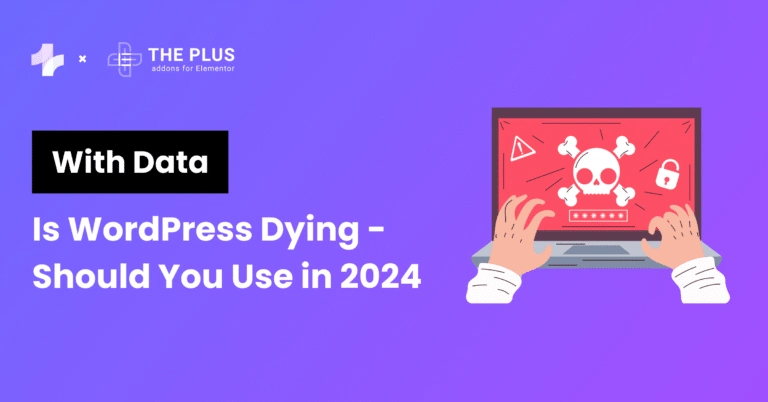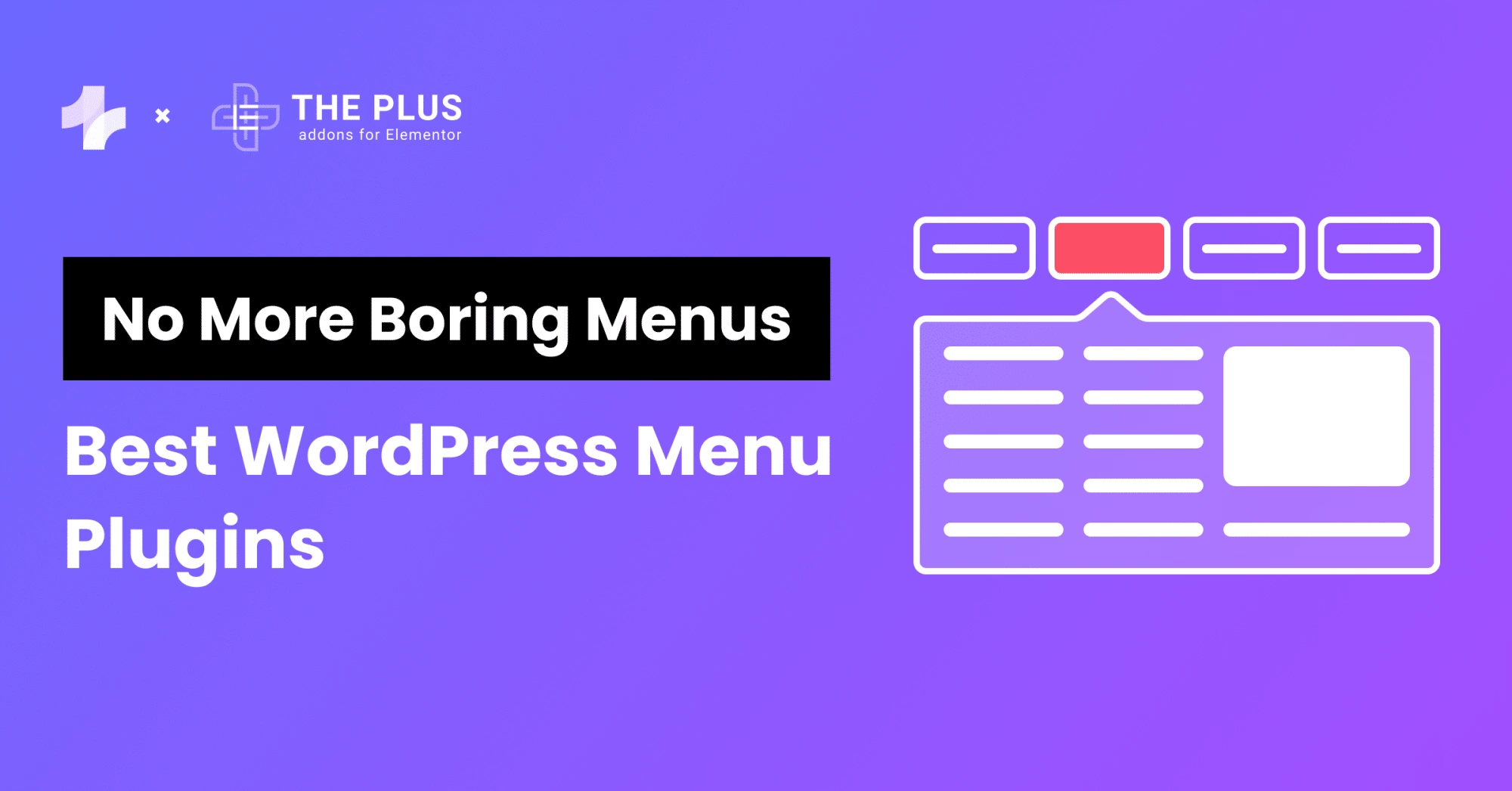If you’re considering building a website or blog, you might wonder about what will be the future of WordPress is WordPress dying. With new website builders on the rise, it’s a valid question. However, it’s not a simple yes or no.
WordPress remains widely used. In 2024, it powered 43.3% of websites on the entire web. It’s the choice for most CMS-driven sites, including NASA and Rolling Stone.
While not the newest, WordPress is still reliable. This article explores WordPress’s state in current times. So you’ll definitely find your question’s answer will WordPress die?
So let’s get started.
What is WordPress? When did it start?
WordPress is a free and open-source content management system (CMS) that powers millions of websites worldwide. Matt Mullenweg and Mike Little first released it on May 27, 2003.
Since then, WordPress has gone through many updates and improvements, making it one of the most popular CMS platforms available today.
WordPress started as an alternative to b2/cafelog, a discontinued platform. The first version of WordPress included a new admin interface, new templates, and generated XHTML 1.1-compliant templates.
On the 20th Birthday of WordPress, we made a video covering the timeline of WordPress growth starting from it release till date.
Over the years, WordPress has evolved into a huge CMS that can be used to create any type of website, from blogs to e-commerce sites.
In 2005, WordPress.com was launched as a hosting platform. According to W3Techs, By 2011, WordPress had gained over a 13.1% market share, surpassing its closest competitor Joomla.
In 2017, WordPress was powering 27.3% of all websites, and by Dec 2022, it had reached over 43.2% market share, solidifying its position as the most popular website platform globally.
Besides, WordPress has a large and active community of developers, designers, and users who contribute to its development and growth. The community has created thousands of plugins and themes that extend the functionality of WordPress and make it easy for users to customize their websites.
The State of WordPress in Modern Times
In today’s time, WordPress is still a widely used content management system (CMS) that powers over 43.4% of all websites on the internet. It is the most popular CMS in the world, and its market share suggests that it is still very relevant in modern times.
As of April 2024, the latest WordPress version 6.5 “Regina” has been released, providing enhanced performance and security. This version introduces features like the Font Library, Enhanced Synced Patterns, Blocks and Custom Fields, and the Interactivity API, along with Site Editor improvements, better plugin experience, and improved accessibility.
WordPress is supported by a large community of developers and users contributing to its growth. This community has created a vast library of plugins and themes, allowing extensive customization of WordPress websites.
According to WPZoom, There are more than 24,000 WordPress themes available as of May 2024 in the WordPress repository, both Free and by ThemeForest’s paid options.
And if we talk about Plugins, The WordPress Plugin Directory has 59,600 free plugins, and CodeCanyon offers over 5,200 paid ones, totaling more than 64,600 plugins to date.
WordPress faces significant security challenges, with around 13,000 sites reportedly hacked daily according to one source, often due to outdated plugins or themes. Keeping everything updated is crucial for security.
WordPress also competes with other CMS platforms like Wix, Squarespace, and Shopify, which attract users with their user-friendly, drag-and-drop website-building tools, appealing to those without technical expertise.
Do you want to stay up to date with the current market trends of WordPress? Then why don’t you read our blog on Best WordPress Newsletters to Subscribe!
Why Are There Rumors About WordPress Dying?
Although being a popular content management system around the world, there have been rumors circulating about its decline in popularity and relevance. Here are some reasons behind it:
1. Lack of Innovation
Some people believe that WordPress is dying because they feel that the platform has not kept up with the times. They argue that WordPress has not introduced enough new features or improvements to remain competitive with other platforms.
2. Outdated Information
Finally, some of the rumors about WordPress dying may simply be based on outdated information. WordPress is constantly evolving, and new updates and improvements are released regularly. It is important to stay up-to-date with the latest information about WordPress to make an informed decision about whether it is the right platform for your website.
3. Performance Concerns
WordPress can be slow if not optimized properly. Poorly coded themes and plugins can slow down your website and negatively impact your user experience. To ensure optimal performance, make sure to use well-coded themes and plugins and optimize your website’s speed and performance.
4. Steeper learning curve
Compared to some modern site builders, WordPress has a steeper learning curve. It may take some time to learn how to use WordPress effectively, especially if you’re not familiar with coding or web development. However, once you get the hang of it, WordPress can be a powerful and flexible tool for building websites.
5. Competition from Modern Site Builders
Modern site builders like Wix and Squarespace have gained popularity in recent years, and they offer an alternative to WordPress for building websites. While these site builders may be easier to use, they may not be as flexible or customizable as WordPress.
6. Maintenance
WordPress requires regular maintenance to ensure optimal performance and security. This includes updating your WordPress installation and plugins, backing up your website, and monitoring for security threats. While this may require some extra effort on your part, it’s important to keep your website running smoothly and securely.
7. Lack of customer support
WordPress is an open-source platform, which means that there is no official customer support team. While there are many online resources and communities available for WordPress users, you may need to rely on these resources for help and support. However, with the right resources and knowledge, you can effectively troubleshoot and solve problems on your own.
8. Security Concerns
Hackers often target WordPress websites, which can become vulnerable if not properly secured. This has led some to question the platform’s security for website building. Sucuri (a website security company) reported that WordPress-powered websites were the most hacked in 2021. Surprisingly, more than 90% of the affected websites identified by Sucuri were using WordPress.
When it is about the security of your blog, then you may read our blog about the 5 Best Anti-Spam Plugins for WordPress to secure your website.
What Google Trends Data show about WordPress?
To know about users’ interest in WordPress in modern times, we have to see a graph of it, here is a picture depicting that:
![Google Trends Data showing about WordPress 2 | The Plus Addons for Elementor Google trends data showing about wordpress 2 is wordpress dying - should you use in 2024? [with data] from the plus addons for elementor](https://theplusaddons.com/wp-content/uploads/2024/05/Google-Trends-Data-showing-about-WordPress-2.webp)
Source: Google Trends
Many are asking if WordPress is losing popularity. That’s why here is a graph that suggests whether how WordPress is being top priority to today’s date or not.
According to Google Trends, You can see that after 2014-15 around, not many people have been searching for ‘WordPress’, the number has declined since those years. Because, now some of the newer platforms like Shopify, Wix, and Squarespace exist in the market and also gaining good traction.
Is WordPress still getting more popular?
![Is WordPress stii getting popular | The Plus Addons for Elementor Is wordpress stii getting popular is wordpress dying - should you use in 2024? [with data] from the plus addons for elementor](https://theplusaddons.com/wp-content/uploads/2024/05/Is-WordPress-stii-getting-popular.png)
Source: W3Techs
Yes, WordPress has been becoming more and more popular since 2011. In 2023, there was a slight decrease in its popularity, which was the first drop since 2011. However, this decrease was minimal, less than half a percent.
Back in early 2017, WordPress was used by 27.3% of all websites. By the end of 2022, this number had grown to 43.2%.
Looking at the trend over the years, WordPress has consistently gained more users since 2011. This growth has been steady, and there’s no indication that it’s going to slow down. If this pattern continues, WordPress could soon be used for half of all the websites on the Internet.
WordPress’ Comparison with Other Content Management Systems
![WordPress Comparison with other CMS | The Plus Addons for Elementor Wordpress comparison with other cms is wordpress dying - should you use in 2024? [with data] from the plus addons for elementor](https://theplusaddons.com/wp-content/uploads/2024/05/WordPress-Comparison-with-other-CMS.webp)
Source: Kinsta
Is WordPress growing faster than its competitors? When it comes to self-hosted systems for managing content, WordPress is leading the way in growth.
Joomla’s market share stayed the same at 2.6%, and Drupal’s market share decreased from 2.0% to 1.6%, showing they aren’t keeping up with WordPress in terms of growth.
However, things are different for hosted website builders like Squarespace and Wix. Even though Squarespace and Wix make up a small part of the market, they are growing quickly compared to self-hosted systems.
Squarespace’s market share went up from 2.7% to 3.0%, and Wix’s market share went up from 2.9% to 3.8%. So, while WordPress is still the most popular choice, Squarespace and Wix are growing faster.
This trend can also be seen on Google Trends, where Joomla and Drupal (and to a lesser extent, WordPress) are seeing less interest, while Squarespace and Wix are gaining slowly but yet getting more attention.
Read out our blog on 10 Common WordPress Mistakes to Avoid to make your website much stronger, secure and rank faster than before.
But Why WordPress’ Current Market Share is Shrinking?
WordPress has long been the most popular content management system (CMS) in the world, powering over 43.4% of all websites (nearly 861 million websites) as of March 2024. However, in recent years, WordPress’ market share has been shrinking slightly.
According to one source, WordPress’ market share among websites with known CMS declined from an all-time high of 65.2% in January 2022 to 63.1% in July 2023.
There are several reasons why WordPress’ market share is shrinking. One of the main reasons is the rise of new, more user-friendly website builders, such as Wix and Squarespace. These platforms offer drag-and-drop interfaces and pre-built templates that make it easy for users to create professional-looking websites without any coding knowledge.
As a result, many users are choosing these platforms over WordPress, which requires more technical expertise to use.
Another reason for WordPress’ declining market share is the increasing competition from other CMS platforms, such as Joomla and Drupal. While these platforms have always been popular among developers and tech-savvy users, they are now gaining traction among mainstream users as well, thanks to their improved user interfaces and features.
Despite these challenges, WordPress remains a powerful and versatile CMS that is used by millions of websites around the world. According to one source 37 million searches are being made for the term “WordPress” every month.
Why will WordPress be still Relevant and Useful for Users..?
Besides shifting the audience’s attention to other CMSs and most users asking if Is WordPress Dead, there are many advantages that you might consider going for WordPress:
1. Ease of Use:
Its intuitive interface and straightforward setup make WordPress beginner-friendly, allowing even those with little technical knowledge to create and manage a website easily.
2. Open Source:
WordPress is free for anyone to use and modify, making it accessible to everyone who wants to build a website without having to pay for software.
3. Flexibility:
WordPress supports custom plugins, themes, and modifications, empowering advanced users to tailor their websites according to specific needs and preferences.
4. Rich Features:
WordPress comes packed with essential website-building tools, ranging from content management to e-commerce capabilities, providing everything needed to create a functional and appealing website.
5. Scalability:
Whether you’re starting with a simple blog or aiming for a large enterprise website, WordPress can smoothly scale to meet your needs without sacrificing performance.
6. SEO Friendliness:
Built-in SEO enhancements of WordPress help optimize content for search engines, improving the chances of better visibility and ranking in search results.
7. Security:
WordPress prioritizes security with regular updates and patches to fix vulnerabilities, ensuring that your website remains protected against potential threats.
8. Support from the Community:
With a vibrant community of users and developers, WordPress offers extensive support through forums, tutorials, and resources, making it easier to find help when needed.
9. Popularity:
WordPress benefits from its widespread use, leading to continuous development, updates, and improvements, making it a trusted and default choice for website creation worldwide.
The Future of WordPress
As we move forward, WordPress continues to be a popular and relevant platform for website development. Here are a few things to keep in mind when considering the WordPress future.
1. Upcoming Features and Updates
WordPress is constantly evolving, with new features and updates being released regularly. After the huge update recently which was 6.5, WordPress is expected to bring significant improvements to the platform’s editor and customization options in future updates in upcoming years. Also, WordPress is expected to continue to prioritize accessibility and security features in future updates.
2. Community and Developer Engagement
WordPress has a large and active community of developers and users who contribute to the platform’s development and growth. This community engagement is a key factor in WordPress’s continued relevance and success. As the community continues to grow, we will likely see more innovative and creative uses of the platform.
3. Predictions and Trends
Looking ahead, we will likely see continued growth in the use of WordPress for e-commerce sites and online marketplaces. We may also see more use of artificial intelligence and machine learning in WordPress plugins and themes. However, these are just predictions, and the future of WordPress will be shaped by the actions and decisions of its users and developers.
![20 Checklist for WordPress Site Maintenance | The Plus Addons for Elementor 20 checklist for wordpress site maintenance is wordpress dying - should you use in 2024? [with data] from the plus addons for elementor](https://theplusaddons.com/wp-content/uploads/2023/05/20-Checklist-for-WordPress-Site-Maintenance-1024x1024.webp)
Do you Manage WordPress Websites? Download Our FREE E-Book of 20+ Checklist for WordPress Site Maintenance.
Is WordPress Dying? Final Answer..
Obviously, the question of whether “Is WordPress dying?” or “will WordPress die?” is important for website owners to consider. Despite challenges like security issues, declining market share, and competition from other platforms, WordPress remains a strong and valuable tool for creating websites.
Another point is Whether WordPress is suitable for you in the modern era depends on your specific website needs, technical comfort level, and security priorities.
While WordPress faces competition, it’s the platform that initiated website building as we know it today. Based on our research and the data we’ve collected, it’s clear that WordPress is far from fading away. Therefore, the clear answer to “Is WordPress Dying?” is a Big No!
Well if you want to try and make your WordPress website for absolutely Free, then you should read How to Make a WordPress Website for Free.
FAQs about Is WordPress Dying!
Why Don’t Developers use WordPress?
While WordPress is a reliable option, some developers opt for alternatives due to potential security risks, performance limitations, and a desire for greater control. Those comfortable with coding often prefer the flexibility of custom-built solutions that scale more easily. That’s why Devs are not going for WordPress in such cases.
What are the latest trends in website development platforms?
The latest trends in website development platforms include the use of artificial intelligence, chatbots, voice search optimization, and progressive web apps. Many website builders are also focusing on providing a seamless user experience across all devices.
How does WordPress compare to other website builders?
While compared to other website builders, WordPress offers more flexibility, customization options, and a vast library of plugins and themes. However, other website builders such as Wix, Squarespace, and Shopify offer more user-friendly interfaces and easier website setup processes.
Does Google prefer WordPress websites?
Google does not show a preference for either WordPress or any particular CMS platform. Google ranks websites based on various factors including content quality, relevance, and user experience, rather than the underlying platform.
How many famous companies are using WordPress as their Blogging platform?
There are many famous companies use WordPress as their blogging or website medium, including BBC America, The Walt Disney Company, Vogue, The PlayStation Blog, eBay, Sony, GM, UPS, Forbes, CNN, The NYT, Samsung, IBM, and TechCrunch.











